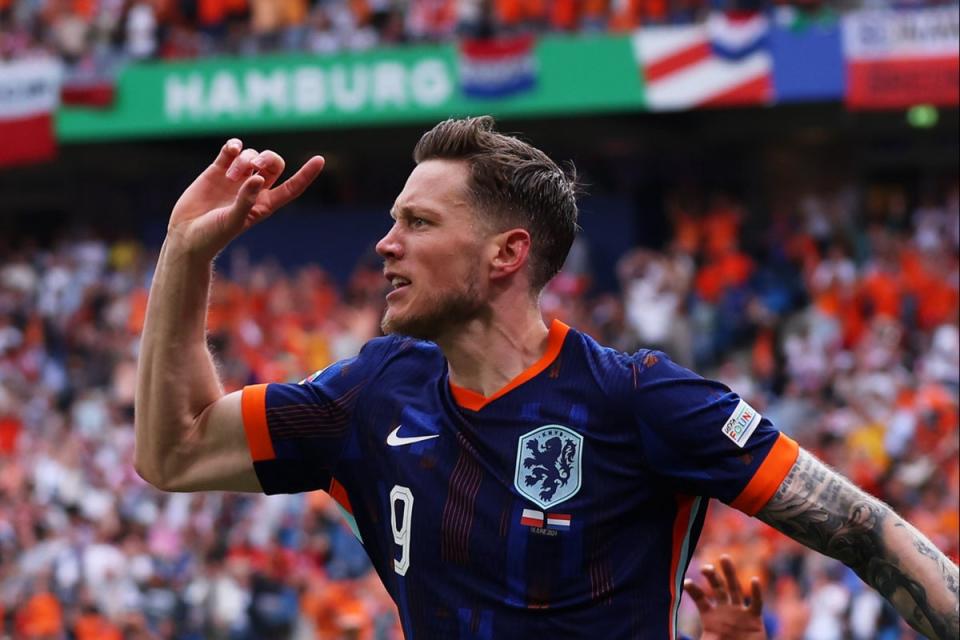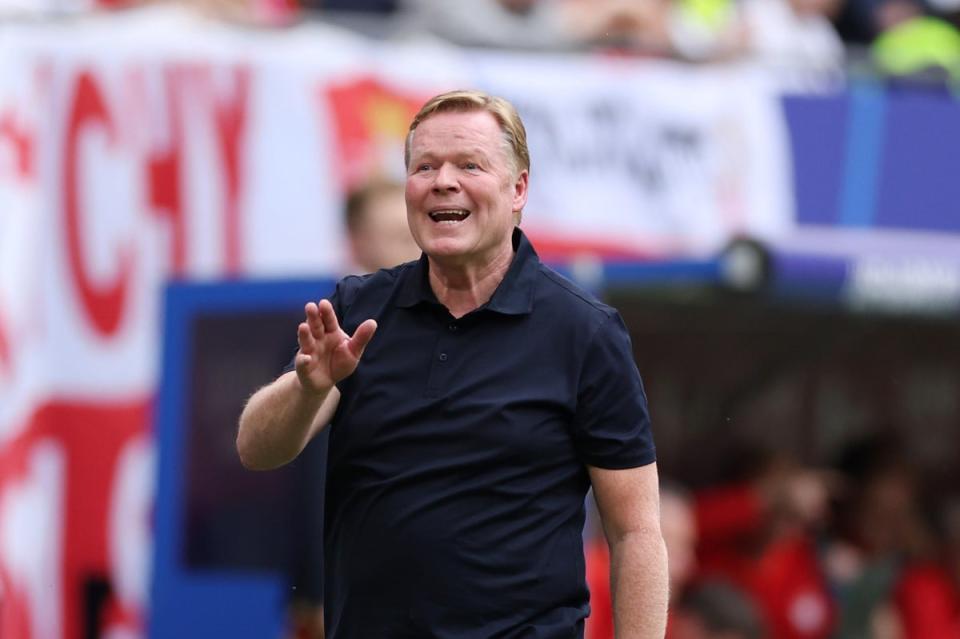Why Wout Weghorst is the ‘English’ contradiction at the heart of the Netherlands team

Ronald Koeman knows what it is like to win a European Championship in Germany. He did so under Rinus Michels, the godfather of Total Football. He won a Champions League under the other architect of the Dutch footballing philosophy, Johan Cruyff. And he won his first European Championship match as a manager thanks to a big, old-fashioned No 9 he threw on. Wout Weghorst is scarcely the heir to Cruyff, the man who was nominally the Netherlands’ centre forward when they reached the final of the 1974 World Cup in West Germany.
But, half a century on, he showed there are different ways of prospering. His goal stemmed from the anticipation of an opening and a smooth finish, rather than brute force, but Koeman underlined his appreciation of the earthier merits Weghorst brings. “Wout is aggressive, he always takes initiative and is a good header as well,” he said. “He has one chance and finds the net.”
If it formed a contrast with the more talented starter Memphis Depay, who squandered three very presentable chances in the 2-1 win over Poland, Koeman is the manager with a purist’s upbringing and a pragmatic streak. “I think every team needs Dutch qualities and also English qualities,” said Koeman, when asked if Weghorst was more of a traditional British centre forward than a classic Dutch attacker. “That makes the team stronger.”
It may have been a throwaway line but it illustrated his thinking. He values fighting spirit and a sizeable No 9: He signed Graziano Pelle for Southampton, wanted Olivier Giroud at Everton and took Luuk de Jong – Weghorst’s sidekick in the Netherlands’ comeback against Argentina in 2022 – to Barcelona.
He likes a big lad in attack. As Pep Guardiola’s former roommate, considering his coaches during his playing career, he should be the ultimate Cruyffian, yet he was an imperfect fit as Barcelona manager. But he had an excellent record in his first spell in charge of his country, only to leave and take the job at the Nou Camp that he had always coveted.
But for that, he would have led the Netherlands in Euro 2020. Instead, he took charge in Euro 2024 and, in a way, carried on seamlessly from Louis van Gaal: He constructed Plan B around the sizeable figure of Weghorst.

“He has value to the team,” Koeman said. “He has a different way of behaving, which is great. It was what we needed.” He was “a little bit upset” not to start, according to Koeman, but said afterwards he was “so happy, it's indescribable”.
The sight of Weghorst standing alone in front of the Dutch fans after the final whistle, arms outstretched, accepting their acclaim, underlined his status as a cult hero. It stems partly from his work ethic: There is a recognition that he is not the most talented, but he represents the working man. Koeman, who scored more goals as a defender than Weghorst has yet managed as a centre forward, has breathed more rarefied air.
But if Koeman is a face of Dutch football, of its ideals and its excellence, Weghorst can represent the contradiction at its heart. That Van Gaal, more of an ideologue in his thinking, found a similar use for Weghorst – as an impact substitute – in part reflected the way Ajax’s last Champions League-winning manager became more willing to adopt direct tactics at the latter end of his career.
That he jettisoned the Total Football formation of 4-3-3 for 3-5-2 in the last World Cup indicated how far he had shifted from the Ajax ideas. Koeman marked his tournament bow by restoring 4-3-3, even if, with the calibre of high-class centre-backs at his disposal, there was a pragmatic case to start with three in the middle. Instead Nathan Ake flourished as a left back.

Koeman restored the wingers that the Ajax school of thought demands: Cody Gakpo was excellent, Xavi Simons less so, and the manager is yet to prove he has a strategy to get the best from a prodigy. He has a remodelled midfield, weakened after the loss of the injured Frenkie de Jong and Teun Koopmeiners.
That second-string midfield may be the Netherlands’ undoing, but Koeman, asked about Germany’s stellar start to the tournament, offered an insight into his own ambition. “We should have scored four goals within an hour,” he said. “If we had, you would have said we are at the same level as Germany.”
And in the process, he perhaps harked back 36 years. He scored at the Volksparkstadion, against West Germany, in the semi-final of Euro ’88 for Michels’s team. For some, that day is remembered more for Koeman pretending to wipe his backside with Olaf Thon’s German shirt. That Dutch team won the final with a magnificent goal from Marco van Basten, the greatest true No 9 the Netherlands has ever had. Weghorst, of course, is scarcely a successor. But he is the pragmatic Koeman’s wildcard in his bid to emulate his achievements as a player from the dugout.

 Yahoo Sports
Yahoo Sports 
